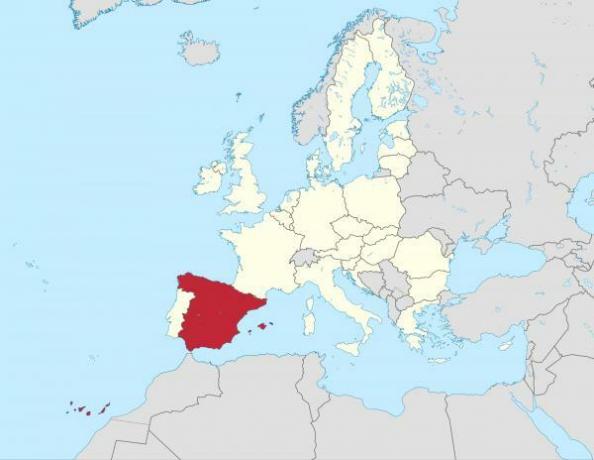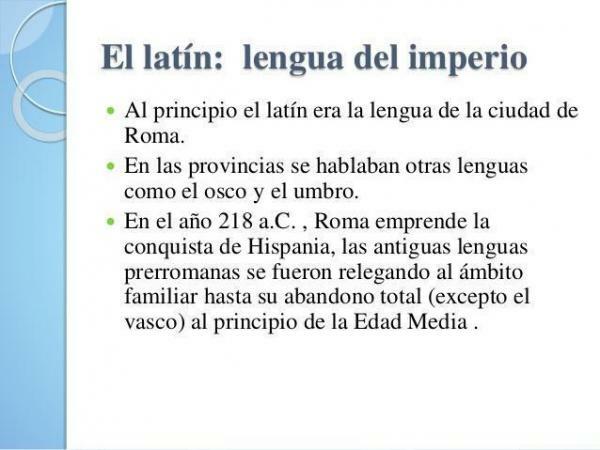Why is Spain called Spain

There are certain words that we say every day without knowing their exact origin. The origin of the name of a country is a curiosity that we do not usually investigate, taking the name of the state for granted. In this lesson from a TEACHER we are going to talk about why is Spain called Spain for all those curious who want to know the origin of the name of the Hispanic country.
The name of Spain derives from the word Hispania, term that the Romans used to refer to the Iberian Peninsula, including the current states of Spain and Portugal. There are several theories about the origin of the name of Hispania, some of them are the following:
- Phoenician hypothesis: It is the most accepted theory by the scholars of the subject. According to this hypothesis, the term Hispania comes from i-spn-ya, used since the 2nd century BC. This term means "Island of the rabbits". The Phoenicians are the first culture that founded a non-Iberian city in the region, since it was a people with a great trade that expanded throughout much of the Mediterranean.
- Vascuence hypothesis: One theory says that the word Hispania comes from the Basque word Izpania, which means "that divides the sea."
- Iberian hypothesis: The word Hispania could come from the Iberá word Hispalis, which means “the city of the West”. According to this hypothesis, Hispalis was the main city of the territory, and later civilizations decided to give this name to the entire territory.
- Legendary hypothesis: According to this theory the name Hispania and Hispalis could come from Hispalo and Hispano, son and grandson of Hercules.

Image: Slideshare
To continue with this lesson on why Spain is called Spain we should talk about the evolution that has had the word Hispania over the centuries and how it ended up varying to become Spain.
The word Hispania was changing little by little to the word Spain, it was a slow period that lasted several centuries until the current name was consolidated as the only name. This change originated from the Visigoths, when Hispania It went from being a term whose function was to refer to a territory, to one that had a clear political connotation.
The word Spain derives from the word Hispania due to the palatization of "n" to "ñ", the loss of "h", characteristic of later Latin, and the transformation of "i" into an "e". These word transformations were common in the vulgar or late Latin, in a period close to the formation of Romance languages, when Latin began a period of extinction that would lead it to become a dead language.

The use of Spain and Hispania it was highly variable throughout the Middle Ages, referring to a different territory depending on who used the word.
An example is the Muslim era, using the term Spain to refer only to the territories conquered by Muslims. Centuries later, the word Spain began to be used to refer to the entire Peninsula, whether they were Muslim or Christian kingdoms. For a time Spain differed from Al Andalus, the first being the word to refer to the area of the Christians in the Peninsula, and the second being used for the Muslim territories in the Peninsula.
Over the years the name of Spain with the kingdoms of Aragon and Castile, proclaiming some of their kings as rulers of Spain, as a way to demonstrate the power they possessed.
After the union of the Crowns of Aragon and Castile the term of Spain to refer to the kingdom that emerged from the merger of both territories. Spain became a state to which the different conquests were joined, conforming the Spain that we know today.
You could say that the end of Spain began to be used to refer to the state more commonly after the Treaty of Westphalia, in which Spain lost the territory of the Netherlands when the delimitations began to be established of the term, that is, the limits of the territory and the existence of a population with characteristics in common.



